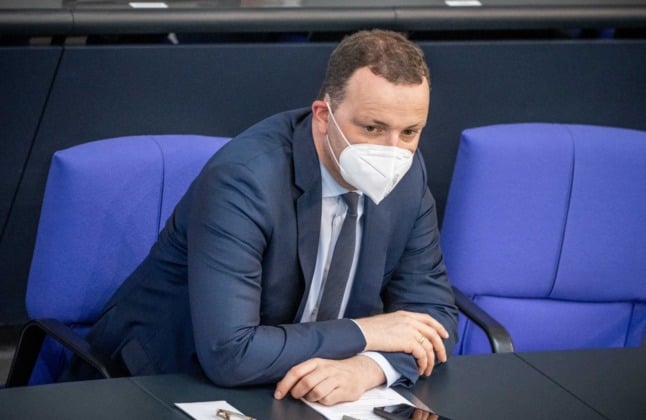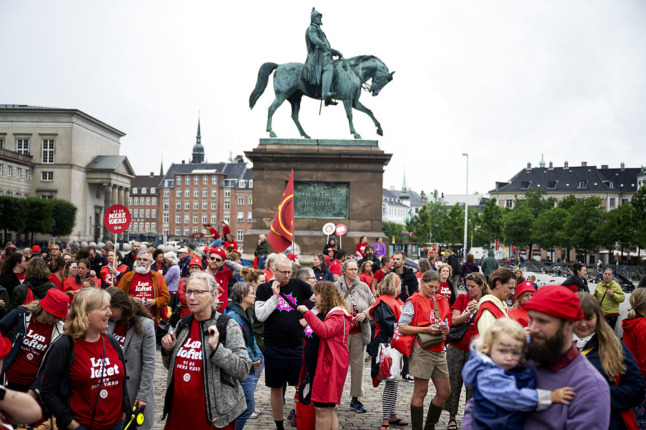For more than a year, the wearing of masks has been mandatory in certain places like in shops and on public transport across Germany in a bid to prevent coronavirus infections.
Busy streets or buses with people wearing cloth, surgical and – from January this year – FFP2 masks, have been a common sight all over the country. But now Covid-19 infection rates are dropping dramatically and the point of mouth and nose protection is being questioned.
On Monday, federal Health Minister Spahn, of the CDU, said he believed a gradual end of the mask obligation was in sight due to the Covid situation.
“With the falling incidences, we should proceed in stages: as a first step, the mask obligation can be dropped outside in principle,” Spahn told the newspapers of the Funke Mediengruppe.
“In regions with very low numbers and a high vaccination rate, the requirement could gradually be dropped indoors,” he added.
However, Spahn said people should always wear a mask “if in doubt” – especially “when traveling and meeting indoors,” he added. “There is more safety only if everyone present is either vaccinated or regularly tested.”
READ ALSO: German justice minister tells states to consider abolishing mask wearing
Health offices in Germany reported 549 new infections to the RKI on Monday, and 10 deaths in the past 24 hours. The 7-day incidence stood at just 16.6 cases per 100,000 people.
Spahn has been under fire recently over face masks after his Health Ministry was accused of planning to distribute masks considered to be sub-standard and not fully protective against Covid-19 to socially and physically vulnerable people.
He has been facing calls to resign – and was subject of a debate in the Bundestag last week where he was accused of putting his ambitions ahead of safety concerns.
Spahn has denied the accusations, saying that the masks were properly inspected by his ministry.
German politicians divided on mask wearing
The widespread lifting of the mask requirement in Denmark from this Monday has also fuelled debate in Germany.
Calls for a complete end to wearing masks in Germany came from the pro-business Free Democrats and the far-right Alternative for Germany (AfD). These parties have said throughout the pandemic that Germany’s Covid rules have been too restrictive to people’s freedoms.
However, SPD health expert Karl Lauterbach and CSU state group leader Alexander Dobrindt said they think ending obligatory masks should only be possible outdoors – not indoors.
At the weekend, Justice Minister Christine Lambrecht (SPD) called on states to clarify whether and where a mask requirement was still proportionate given the low figures in Germany.
“This also applies to schools, because schoolchildren are particularly affected by the mask-wearing requirement,” she said.
READ ALSO: How face masks have helped slow down the spread of coronavirus in Germany



 Please whitelist us to continue reading.
Please whitelist us to continue reading.
Member comments